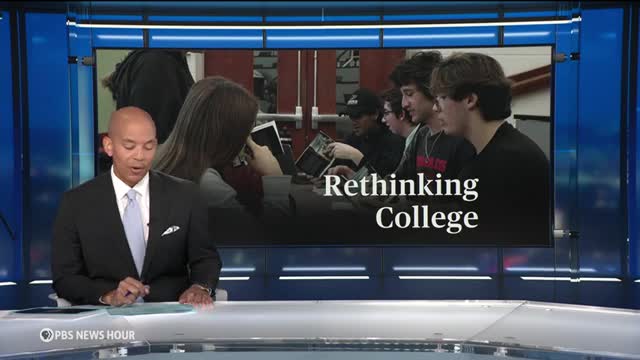Purdue University revives humanities with innovative education program
This article was created by AI summarizing key points discussed. AI makes mistakes, so for full details and context, please refer to the video of the full meeting. Please report any errors so we can fix them. Report an error »

In a time when humanities programs face declining enrollment, Purdue University is taking a bold approach to reinvigorate interest in liberal arts education. The university's Cornerstone program, designed to integrate liberal arts into the curriculum for non-liberal arts majors, has seen significant success, with participation growing from 100 students in its pilot year to over 5,000 today.
The initiative, led by history professor Melinda Zook, aims to provide a holistic education that includes classic texts and the arts, fostering critical thinking and empathy among students. The program replaces traditional communication requirements with courses that encourage debate and personal reflection, drawing on works from authors like Homer, Shakespeare, and Octavia Butler.
Purdue's College of Liberal Arts has faced challenges, with a reported 40% drop in majors over the past decade. However, under the leadership of Dean David Rheingold, the university has shifted its strategy to emphasize the importance of a well-rounded education. Rheingold noted that the decline in humanities enrollment reflects broader societal trends, including a focus on technology and job prospects over traditional liberal arts disciplines.
The success of Cornerstone has not only increased student engagement but has also led to the hiring of over 100 new liberal arts faculty members, a rare trend in the current educational landscape. This growth aims to ensure that students receive a comprehensive education, regardless of their major, and to preserve the relevance of the humanities in a rapidly changing world.
As other institutions take notice, similar programs are emerging across more than 70 colleges nationwide, including community colleges, where the need for a robust general education experience is increasingly recognized. The Cornerstone initiative exemplifies a proactive response to the challenges facing humanities education, emphasizing the value of understanding oneself and others in a diverse society.
The initiative, led by history professor Melinda Zook, aims to provide a holistic education that includes classic texts and the arts, fostering critical thinking and empathy among students. The program replaces traditional communication requirements with courses that encourage debate and personal reflection, drawing on works from authors like Homer, Shakespeare, and Octavia Butler.
Purdue's College of Liberal Arts has faced challenges, with a reported 40% drop in majors over the past decade. However, under the leadership of Dean David Rheingold, the university has shifted its strategy to emphasize the importance of a well-rounded education. Rheingold noted that the decline in humanities enrollment reflects broader societal trends, including a focus on technology and job prospects over traditional liberal arts disciplines.
The success of Cornerstone has not only increased student engagement but has also led to the hiring of over 100 new liberal arts faculty members, a rare trend in the current educational landscape. This growth aims to ensure that students receive a comprehensive education, regardless of their major, and to preserve the relevance of the humanities in a rapidly changing world.
As other institutions take notice, similar programs are emerging across more than 70 colleges nationwide, including community colleges, where the need for a robust general education experience is increasingly recognized. The Cornerstone initiative exemplifies a proactive response to the challenges facing humanities education, emphasizing the value of understanding oneself and others in a diverse society.
View full meeting
This article is based on a recent meeting—watch the full video and explore the complete transcript for deeper insights into the discussion.
View full meeting